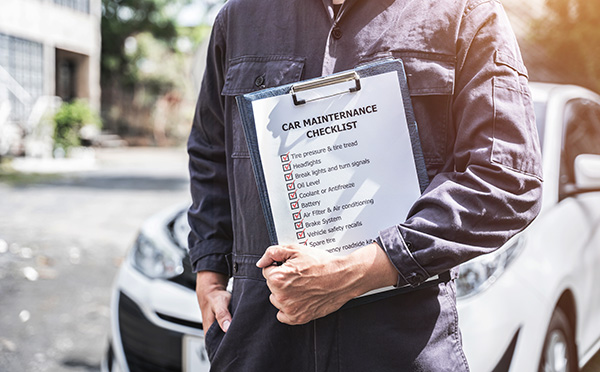
Heading off to college often means new responsibilities, including taking care of your car. Your vehicle can be your lifeline to independence, freedom, and convenience, but it requires regular maintenance to stay reliable and safe. As a college student, managing car upkeep might seem daunting amidst your busy schedule, but it's easier than you think. Knowing a few essential car maintenance tips can save you time, money, and potential headaches down the road. These are some must-know car maintenance tips that every college student should be aware of.
Basic Car Care
First things first, understanding your car's basic needs is crucial. Here are some key points to remember:
Read Your Owner's Manual
This contains all the necessary information about maintenance schedules, fluid types, and other specific details unique to your car model. Keep this manual in your glove compartment for easy reference.
Check Fluid Levels Regularly:
- Engine Oil: Lubricates and protects engine components. Low oil levels can cause severe engine damage.
- Coolant: Regulates engine temperature and prevents overheating.
- Brake Fluid: Essential for proper brake function and safety.
- Windshield Washer Fluid: Ensures clear visibility by keeping your windshield clean.
- Monitor Tire Pressure Monthly: Properly inflated tires improve fuel efficiency, ensure better handling, and reduce the risk of blowouts.
Regular Oil Changes
One of the simplest yet most crucial maintenance tasks is changing your car's oil regularly. Oil is the lifeblood of your engine, lubricating the moving parts and keeping everything running smoothly. Over time, oil can break down and become contaminated, leading to engine wear and tear. Most cars need an oil change every 3,000 to 5,000 miles, but check your owner's manual for the specific recommendation for your vehicle. If you're unsure how to change the oil yourself, many service centers offer quick and affordable oil change services. Regular oil changes can extend the life of your engine and enhance your car's performance.
Battery Maintenance
Imagine being late for a class or an exam because your car won't start. To avoid such scenarios, pay attention to your car's battery. Car batteries typically last between three to five years, but factors like climate and driving habits can affect their lifespan. Regularly inspect your battery for any signs of corrosion or leaks. Clean the terminals if you notice any buildup, as this can impede the battery's performance. If your car struggles to start or the battery is over three years old, consider getting it tested or replaced. Many auto parts stores and service centers offer free battery testing, ensuring you won't be stranded unexpectedly.
Brake Checks
Your car's brakes are essential for your safety, especially when navigating through busy college campuses and nearby areas. Regularly check your brake pads and rotors for wear. If you hear squeaking, grinding, or notice a decrease in braking efficiency, it's time to have them inspected. Worn-out brakes can compromise your ability to stop quickly in an emergency, so don't ignore these signs. Regular brake maintenance can prevent costly repairs and keep you safe on the road. If you're not comfortable checking the brakes yourself, have them inspected during routine service visits.
Lights and Signals
Properly functioning lights and signals are crucial for visibility and communication with other drivers. Regularly inspect your headlights, taillights, brake lights, and turn signals to ensure they are working correctly. Replacing a burnt-out bulb is usually a simple and inexpensive fix but can significantly impact your safety. Clean your light lenses regularly to ensure maximum brightness. Dirty or foggy lenses can reduce the effectiveness of your lights, making it harder for you to see and be seen by others, especially during nighttime or adverse weather conditions.
Tire Care
Your car's tires are the only part of the vehicle that makes direct contact with the road, making their maintenance crucial. Regularly check the tire pressure, tread depth, and overall condition of your tires. Proper tire pressure improves fuel efficiency, handling, and reduces the risk of a blowout. Use a tire pressure gauge to check the pressure monthly, and inflate the tires to the manufacturer's recommended levels. Inspect the tread depth to ensure adequate grip, especially in wet or slippery conditions. Rotate your tires every 6,000 to 8,000 miles to ensure even wear and extend their lifespan. Don't forget to check the spare tire as well, so it's ready in case of an emergency.
Emergency Kit
An emergency kit can be a lifesaver in unexpected situations. Keep a well-stocked emergency kit in your car, including items like a spare tire, jack, lug wrench, jumper cables, flashlight, first-aid kit, and basic tools. Additionally, consider adding items like blankets, water, non-perishable snacks, and a portable phone charger. This kit can help you manage minor repairs, stay safe while waiting for roadside assistance, or keep you comfortable during unforeseen delays. Regularly check and replenish your kit, ensuring all items are in working order and easily accessible.
Don't let car troubles disrupt your busy college life. Visit Snider Auto Care for comprehensive inspections and repairs. Book your service now and drive with confidence!